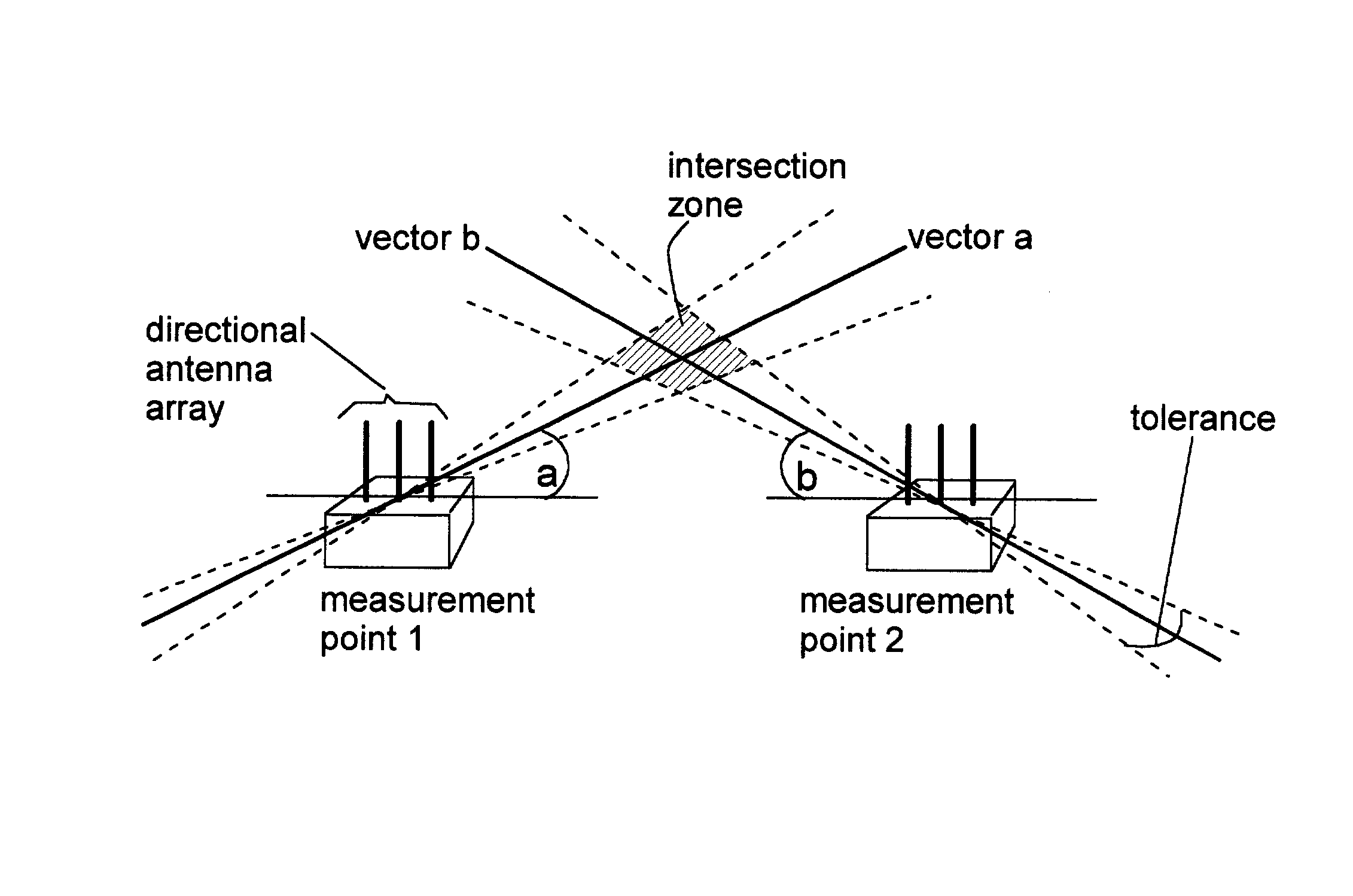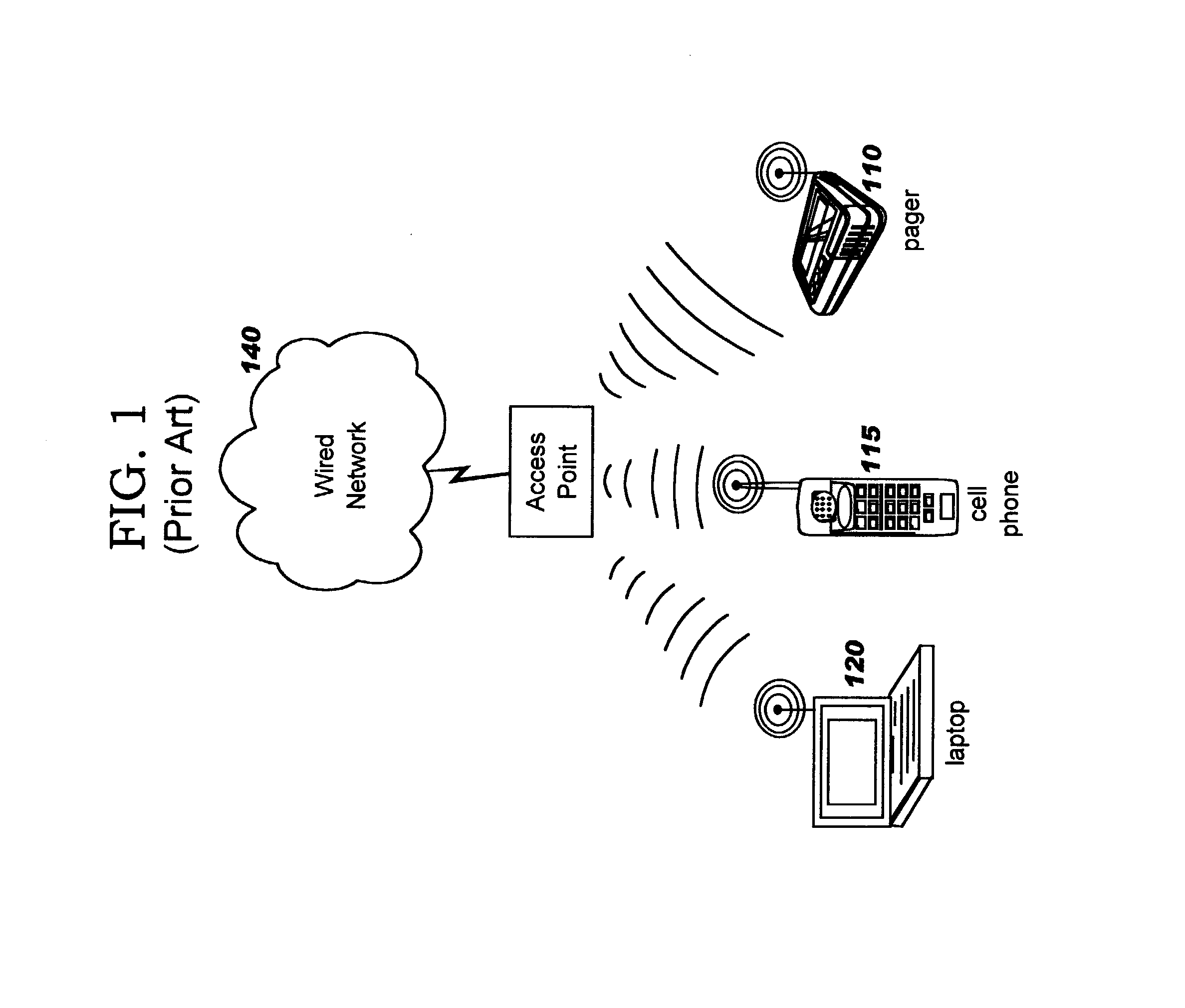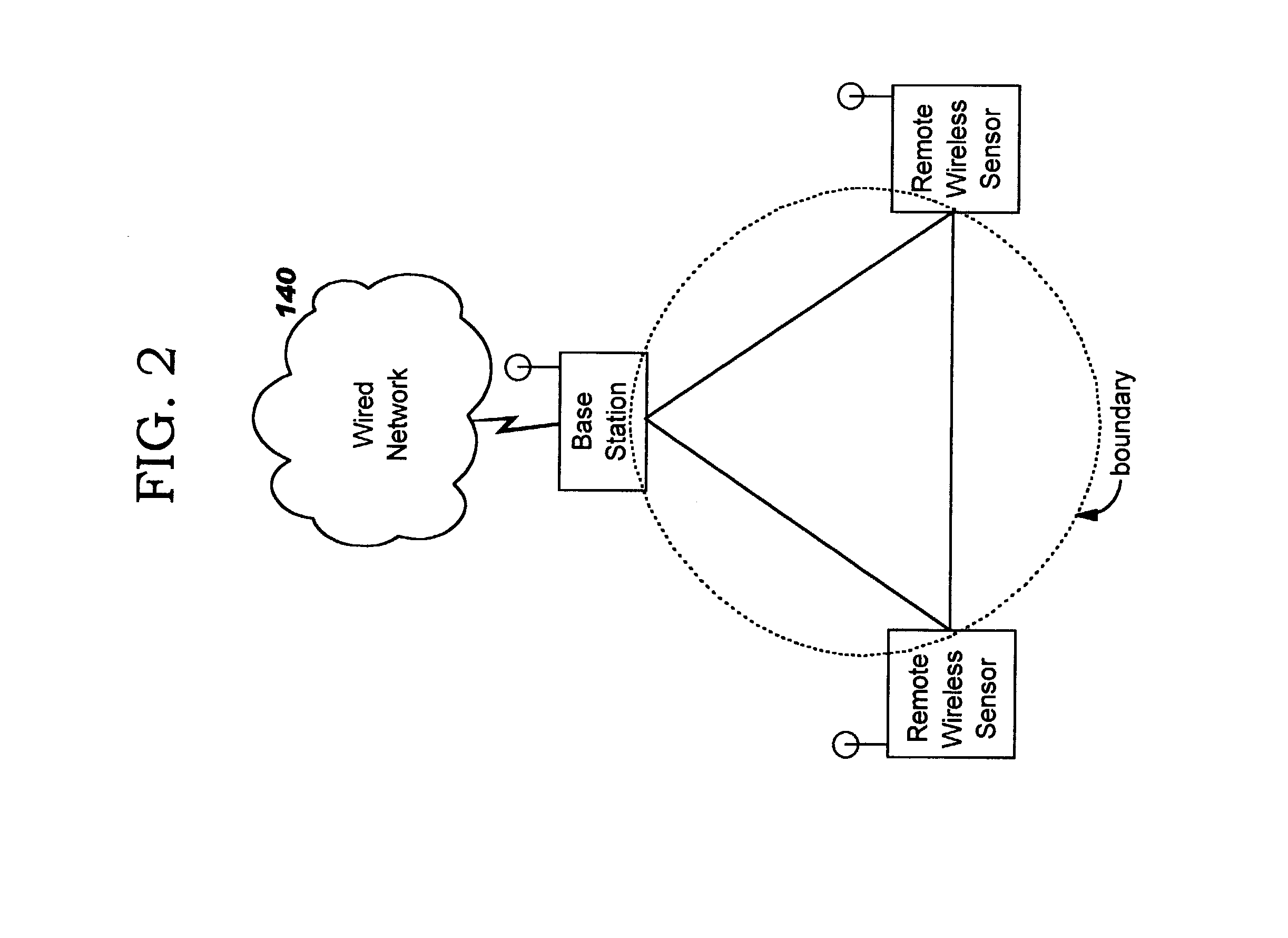Monitoring changeable locations of client devices in wireless networks
a wireless network and client device technology, applied in transmission monitoring, surveillance circuits, instruments, etc., can solve the problems of not understanding the side effects of its use and no insight into the underlying technology, and achieve the effect of improving security in wifi networks
- Summary
- Abstract
- Description
- Claims
- Application Information
AI Technical Summary
Benefits of technology
Problems solved by technology
Method used
Image
Examples
Embodiment Construction
[0028]Security of wireless networks is improved by rejecting traffic from a wireless device located outside a defined spatial boundary. The device's spatial position with respect to the boundary is determined using multiple directional antenna arrays and calculating where the vectors intersect. Problems of prior art approaches are solved by the present invention, which provides a novel application of existing technologies.
[0029]Most client adapters in existing devices use omni-directional antennas. However, in addition to the significant attenuation of the radio signal as it passes through intervening objects like walls and furniture, these so-called omni-directional antennas exhibit significant variations in gain patterns, i.e., they are not really omni-directional. Thus, the signal strength seen at a receiver is of no use in determining the distance to the transmitter.
[0030]The present invention overcomes problems of the prior art using a modified WiFi access point (also called a ...
PUM
 Login to View More
Login to View More Abstract
Description
Claims
Application Information
 Login to View More
Login to View More - R&D
- Intellectual Property
- Life Sciences
- Materials
- Tech Scout
- Unparalleled Data Quality
- Higher Quality Content
- 60% Fewer Hallucinations
Browse by: Latest US Patents, China's latest patents, Technical Efficacy Thesaurus, Application Domain, Technology Topic, Popular Technical Reports.
© 2025 PatSnap. All rights reserved.Legal|Privacy policy|Modern Slavery Act Transparency Statement|Sitemap|About US| Contact US: help@patsnap.com



